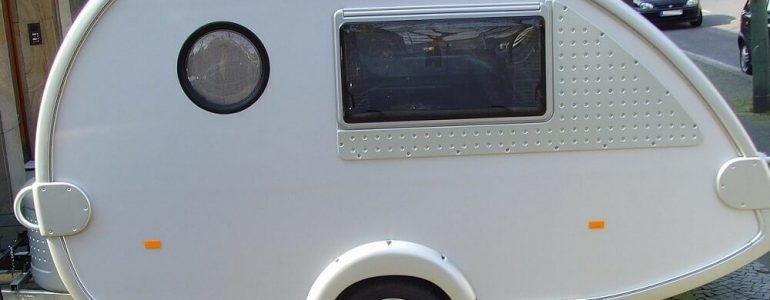Trailers are easy targets for thieves since they don’t have the same level of security as a vehicle. In most cases, there is no alarm or any kind of lock to deter a thief.
They’ll simply drive up in their car, hitch your trailer to it and drive off. Sometimes they want the trailer itself, other times they want what’s inside the trailer.
What makes trailers even more appealing is that they are hard to track down. Most don’t come with trackers or any distinctive marks. So selling them off is easy.
Whether you’ve packed your trailer at home, at a park or at a camping site, here are the best tips to secure it from theft.
1. Locks, Locks, Locks
If you use only one safety measure, let it be locks. They provide the best deterrence against theft.
There are different types of trailer locks.
a. Coupler Lock
You should always use a coupler lock when you’ve parked your unhitched trailer in the driveway or at a park. It prevents a thief from hitching your trailer to their car.
There are different types of coupler locks with varying levels of security. But they all work by blocking the ball socket, meaning the trailer cannot be attached to a hitch without removing the lock.
We recommend steel coupler locks as they provide the best security against a hammer or crowbar.
b. Hitch/Receiver Lock
Your trailer is not only at risk when unhitched.
Even if it is hitched to your car, someone can unhitch it and attach it to their car.
For theft protection when the trailer is hitched, use a hitch lock. It prevents a thief from unhitching the trailer by locking the trailer hitch and receiver together.
As with coupler locks, there’s a wide variety of hitch locks that provide different levels of security.
Invest in a premium high-security lock even if you have to spend more.
Also, check that the lock can withstand exposure to the elements without rusting.
c. Wheel Lock
You can use a wheel lock in addition to the other two locks or on its own. It’s helpful if you are planning to leave the trailer parked unhitched at home or somewhere else.
If the thief defeats your coupler lock or you don’t have one, the wheel lock prevents the trailer from being driven away
A simple wheel lock clamps around the wheel, preventing it from turning. Advanced wheel locks incorporate additional protection for the lug nuts, ensuring a thief can’t remove the wheel.
Other wheel locks have spikes that will puncture the wheel if the thief attempts to drive the trailer away, effectively immobilizing it.
d. Door Lock
Unless you have a flatbed trailer, your trailer has a door or two.
If thieves can’t make away with the trailer, they will try to steal what’s inside. So as you secure the trailer itself, don’t neglect to secure the doors.
There are many different kinds of trailer door locks ranging from simple low to medium security padlocks to puck locks that offer much higher security.
Do your research and find the best lock for your needs.
Make sure the lock is highly resistant to common attacks like picking, drilling, bumping and snapping.
2. Install an Alarm
Since your trailer is not always connected to a power source, get a simple battery-operated alarm that can detect motion and other disturbances that might indicate an ongoing theft.
If you want more security, there are many advanced, though pricier, trailer alarm systems in the market. Some will even contact you automatically if they detect an attack.
3. Install a GPS Tracker
A battery-operated tracker will help you recover your trailer in case it is stolen.
Some companies require you to pay a monthly fee to monitor the tracker for you.
There are also those who will give you access to an app or web-based platform after purchasing the tracker without any monthly fees.
No matter what kind of wheel or coupler lock you’ve installed, having a GPS tracker as well is a good idea.
No lock is 100% impervious to an attack. With enough time, most thieves will get through the toughest of locks.
A GPS tracker ensures you don’t lose your trailer even if the thief breaks the other defences.







